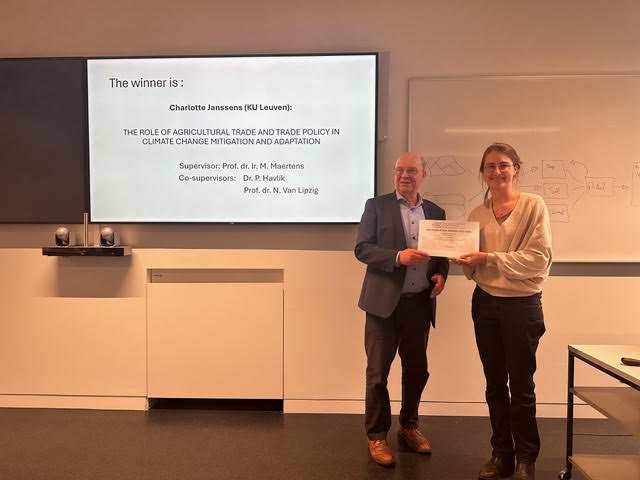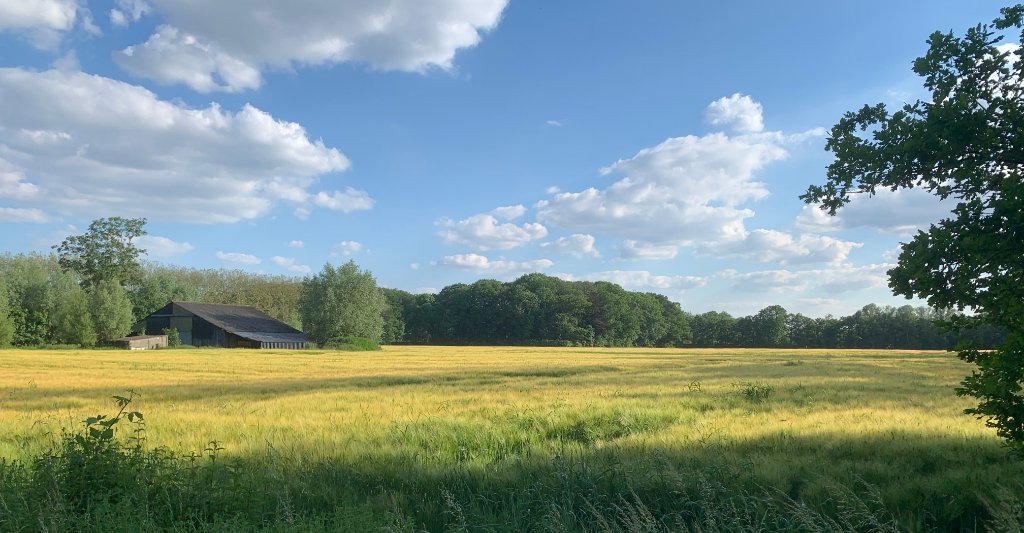BVLE/ABER PhD Award 2022-2025
was awarded to
CHARLOTTE JANSSENS
At the 25th BAAE PhD Symposium (24/4/2025), the BVLE/ABER PhD Award 2022-2025 was awarded to Charlotte Janssens for her PhD on “The Role of Agricultural Trade and Trade Policy in Climate Change Mitigation and Adaptation”. Charlotte completed her dissertation on December 9, 2022, at the Division of Bioeconomics at KU Leuven under the supervision of Prof. Dr. Ir. Miet Maertens (KU Leuven) and the co-supervision of Dr. Petr Havliģk (IIASA) and Prof. Dr. Nicole Van Lipzig (KU Leuven). In her PhD, Charlotte studied the impact of agricultural trade on climate change adaptation, food security, and GHG emissions using a variety of modeling approaches, from empirical economic models to forward-looking integrated assessment models.


The Belgian Association of Agricultural Economists (BAAE) aims to bring together those interested in the field of agricultural policy and agricultural economics around certain specific themes that are usually clarified from an academic perspective. However, the BAAE is not only aimed at specialists in the research world, but also at those who practise agricultural economics in practice: people from professional circles, members of administrations, politicians, leading figures from the business world including supplying and processing companies, students, etc.
